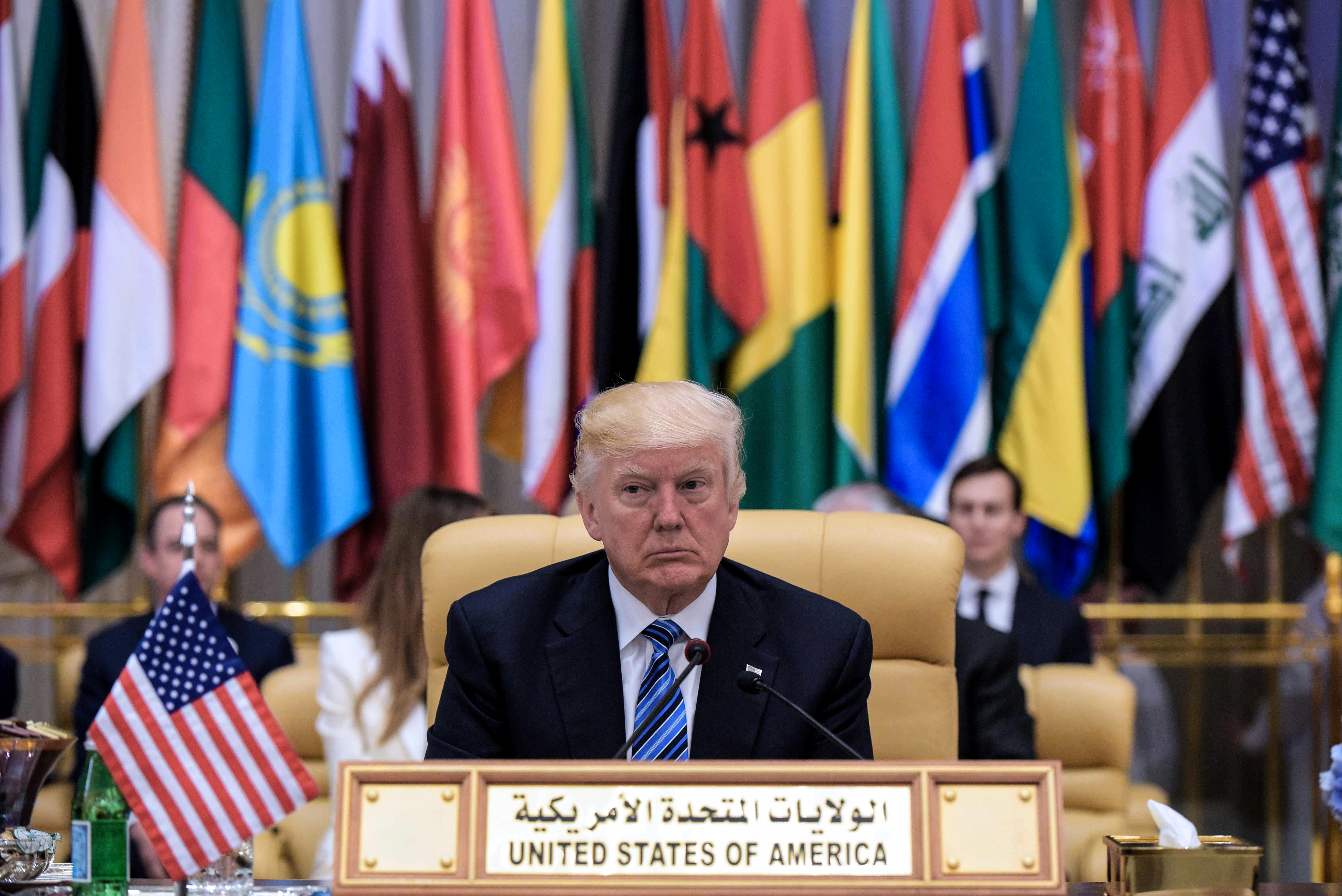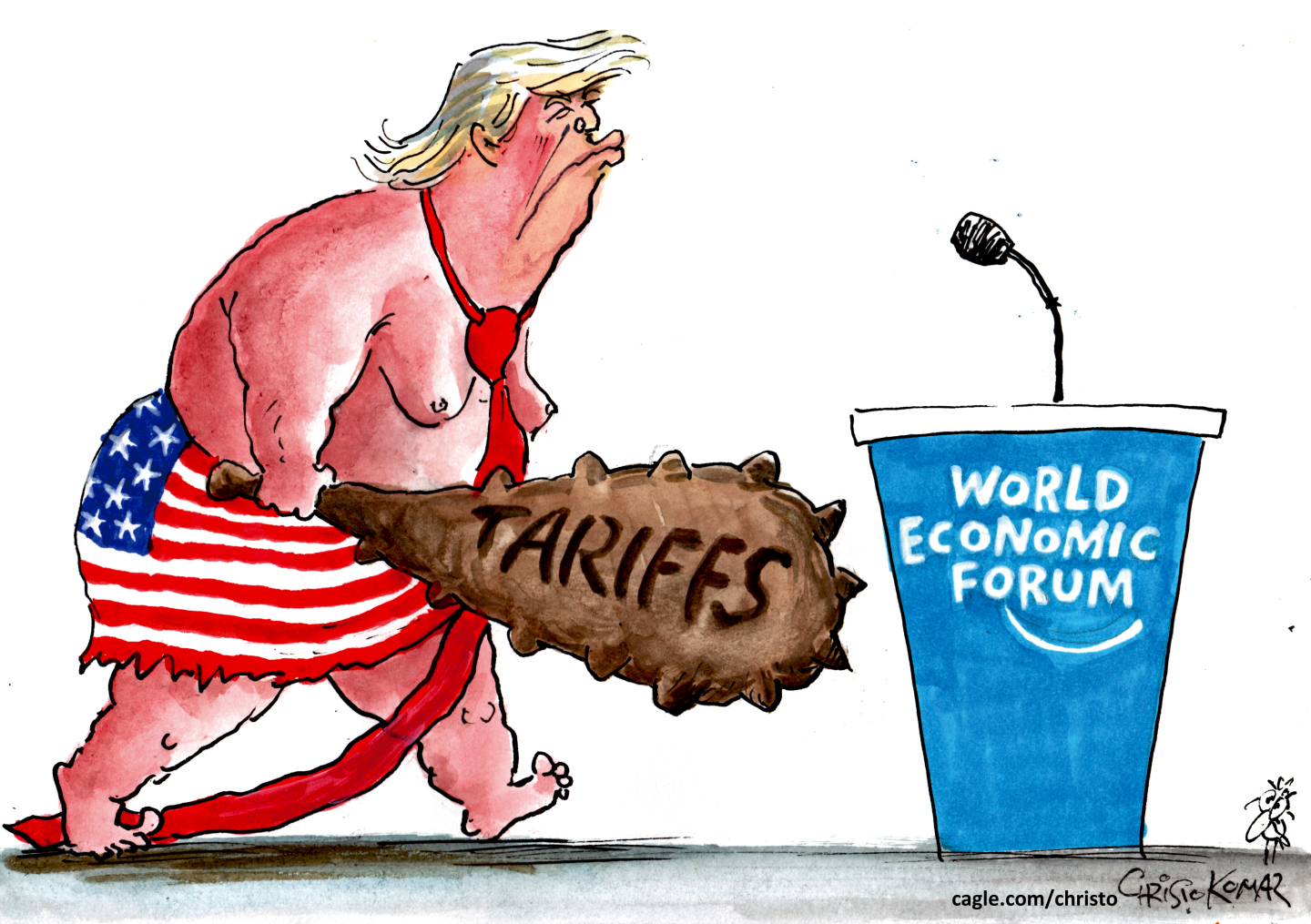How Trump's gullibility provoked an international crisis
The Saudis played the president like a cheap fiddle


Another day, another diplomatic crisis in the Middle East. This one, unusually, is all about Qatar, the ultra-wealthy monarchy in the Persian Gulf. On Monday, Saudi Arabia, Bahrain, the United Arab Emirates, and Egypt, as well as factions within war-torn Yemen and Libya, announced they were severing diplomatic ties with Qatar. Qatari nationals have been ordered out of those countries, the border with Saudi Arabia has been closed, and some offices of Qatar's Al Jazeera network have been shuttered.
There are many longstanding sources of tension between Qatar and these nations. But the proximate cause of the breach was President Trump's visit, as he himself explained on Twitter. His combination of extreme ignorance and extreme gullibility allowed the Saudis to seize the initiative against a rival. Having a fool as a president is not so great.
As Derek Davison explains, the crisis is rooted in the geography and history of Qatar. As a tiny peninsula state (population: 2.7 million, only about 300,000 of whom are citizens), which has been ruled by outsiders for most of its history and whose only land access comes via the much larger and more powerful Saudi Arabia, Qatari strategic thinking has been consumed by ways to secure itself against Saudi domination. (It's also worth noting that many of the expatriates living there are prevented from leaving and endure conditions of brutal exploitation.)
The Week
Escape your echo chamber. Get the facts behind the news, plus analysis from multiple perspectives.

Sign up for The Week's Free Newsletters
From our morning news briefing to a weekly Good News Newsletter, get the best of The Week delivered directly to your inbox.
From our morning news briefing to a weekly Good News Newsletter, get the best of The Week delivered directly to your inbox.
Qatar has the world's fourth-largest reserves of oil and natural gas (also giving it the world's highest per-capita income), and it has used that money in various ways to backstop its position. Under Emir Hamad bin Khalifa Al Thani, who overthrew his father in 1995, and then abdicated in favor of his son Tamim in 2013, they adopted a fairly promiscuous diplomatic approach, trying to curry favor with all manner of parties. They host the largest American military base in the region, and they were helping Saudi Arabia with its disastrous Yemen intervention (until now). But they also have cultivated ties with Hamas and Iran, and supported many Arab Spring movements, particularly the Muslim Brotherhood in Egypt and sundry Islamist Syrian rebels.
These last two moves infuriated the Saudis. Iran is their great regional rival, and they hate the idea of any sort of political Islam outside of their own version. President Obama was too wary to take sides in the dispute, so as long as he lasted the status quo was preserved. But when Trump visited the region, apparently they accused Qatar of being the fount of all radical Islamism (after first buttering him up with pictures of his face plastered over everything). He swallowed it whole:
This puts Qatar in a very tricky spot, since much of its food comes overland from Saudi Arabia, and its airlines have been forced to fly around through Iran. There has already been panicked hoarding at grocery stores, and as Fred Kaplan points out, Saudi newspapers are already basically calling for a military coup d'etat.
It's anybody's guess what will happen next. Perhaps Qatar will withdraw enough media and funding support for things the Saudis don't like to buy them off, and everything will return to normal. Or perhaps the Saudis will get greedy and try to install a puppet government. Even the rattletrap Saudi military could probably defeat the tiny Qatari force, though that would raise the thorny prospect of fighting near the huge American military base there, and possible Iranian retaliation.
A free daily email with the biggest news stories of the day – and the best features from TheWeek.com
Or perhaps worst of all, this would just be one more step towards forming a 1914-style set of alliance blocs across the whole of the Middle East and North Africa, with a Sunni bloc led by Saudi Arabia, and a Shia bloc led by Iran — a powder keg which would not just be dangerously unstable, but actually already on fire in multiple locations. War and devastation across the parts of the region that aren't already a smoking crater could be the result.
Now, it is true that Qatar has likely funded some terrorist groups. But Saudi hands are not remotely clean in that department. Only an absolute dolt would either take Saudi accusations at face value, or look at the delicate balance of power and diplomacy and the way America has (for good or bad) insinuated itself into both sides of the rivalry, and with no warning suddenly galumph off towards one side. Qatar thought it was purchasing some American backing by hosting a large base — but it turns out a child could manipulate our president.
May God have mercy on us all.
Ryan Cooper is a national correspondent at TheWeek.com. His work has appeared in the Washington Monthly, The New Republic, and the Washington Post.
-
 Ryanair/SpaceX: could Musk really buy the airline?
Ryanair/SpaceX: could Musk really buy the airline?Talking Point Irish budget carrier has become embroiled in unlikely feud with the world’s wealthiest man
-
 Claudette Colvin: teenage activist who paved the way for Rosa Parks
Claudette Colvin: teenage activist who paved the way for Rosa ParksIn The Spotlight Inspired by the example of 19th century abolitionists, 15-year-old Colvin refused to give up her seat on an Alabama bus
-
 5 contentious cartoons about Donald Trump at Davos
5 contentious cartoons about Donald Trump at DavosCartoons Artists take on weaponized tariffs, a cheeky offering, and more
-
 The billionaires’ wealth tax: a catastrophe for California?
The billionaires’ wealth tax: a catastrophe for California?Talking Point Peter Thiel and Larry Page preparing to change state residency
-
 Bari Weiss’ ‘60 Minutes’ scandal is about more than one report
Bari Weiss’ ‘60 Minutes’ scandal is about more than one reportIN THE SPOTLIGHT By blocking an approved segment on a controversial prison holding US deportees in El Salvador, the editor-in-chief of CBS News has become the main story
-
 Has Zohran Mamdani shown the Democrats how to win again?
Has Zohran Mamdani shown the Democrats how to win again?Today’s Big Question New York City mayoral election touted as victory for left-wing populists but moderate centrist wins elsewhere present more complex path for Democratic Party
-
 Millions turn out for anti-Trump ‘No Kings’ rallies
Millions turn out for anti-Trump ‘No Kings’ ralliesSpeed Read An estimated 7 million people participated, 2 million more than at the first ‘No Kings’ protest in June
-
 Ghislaine Maxwell: angling for a Trump pardon
Ghislaine Maxwell: angling for a Trump pardonTalking Point Convicted sex trafficker's testimony could shed new light on president's links to Jeffrey Epstein
-
 The last words and final moments of 40 presidents
The last words and final moments of 40 presidentsThe Explainer Some are eloquent quotes worthy of the holders of the highest office in the nation, and others... aren't
-
 The JFK files: the truth at last?
The JFK files: the truth at last?In The Spotlight More than 64,000 previously classified documents relating the 1963 assassination of John F. Kennedy have been released by the Trump administration
-
 'Seriously, not literally': how should the world take Donald Trump?
'Seriously, not literally': how should the world take Donald Trump?Today's big question White House rhetoric and reality look likely to become increasingly blurred
